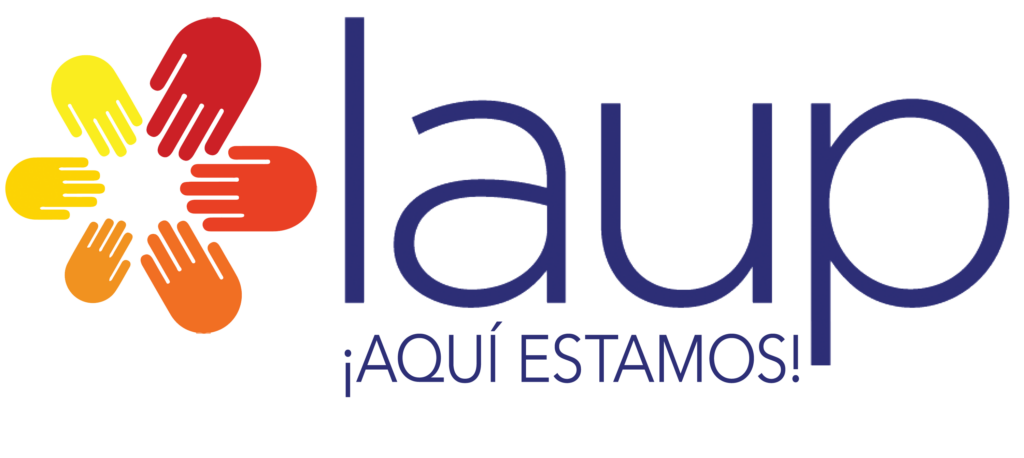Estados Unidos ha sido considerado durante mucho tiempo la tierra de las oportunidades. A lo largo de los siglos
de la historia del país, millones de personas han emigrado a Estados Unidos en busca de oportunidades, prosperidad
y libertad. La inmigración es un tema constante en el sistema político estadounidense, con acalorados debates
en torno al tema desde todos los ángulos. Para muchos inmigrantes, obtener la ciudadanía estadounidense es el
objetivo final, la luz al final del túnel.
Aunque la veracidad de estos valores es muy discutida por quienes viven en el país, una mirada desde fuera a
muestra que la mera oportunidad de una vida mejor a menudo vale lo suficiente como para arriesgarlo todo.
Pero, ¿qué significa llegar a Estados Unidos?
"En Estados Unidos hay muchas oportunidades que nunca habría tenido en
México", dice Carmen Sánchez Morales
Para Carmen, inmigrante nacida en México, la ciudadanía había sido su sueño desde que
llegó a Estados Unidos.
"Quería formar parte de Estados Unidos, de verdad", dijo Carmen, "pertenecer aquí y poder
votar".
Nunca pensó que llegaría a ser ciudadana, sobre todo con la creciente presión política
que provoca complicaciones aún mayores del sistema.
Carmen ha pasado los últimos 30 años de su vida en Estados Unidos, trabajando, haciendo
contactos y contribuyendo a su comunidad pagando impuestos. A pesar de estos tres decenios,
Carmen no obtuvo la nacionalidad hasta 2022.
Carmen llegó a Estados Unidos de vacaciones. En aquel momento, trabajaba en la aplicación de la ley
y le dieron un mes de vacaciones, que planeaba pasar con una amiga en
el sur de EE.UU.
Al llegar a EE.UU. con un pasaporte mexicano y un visado actualizado de 6 meses,
Carmen se enamoró del país. En ese momento supo que haría de Estados Unidos su
hogar.
Muchas personas en la situación de Carmen toman la peligrosa decisión de quedarse más tiempo del permitido por su visado, con lo que
corren el riesgo de ser detenidas e incluso deportadas si son descubiertas por los servicios de inmigración estadounidenses.
Carmen, sin embargo, tenía un as en la manga. Un amigo íntimo de su hermano era un experimentado abogado de
. Gracias a su experiencia e influencia, Carmen pudo prorrogar continuamente su visado,
lo que le permitió permanecer en Estados Unidos de forma segura. Para la mayoría, esto no es una realidad. Carmen describe con humildad cómo
sin ayuda, se habría convertido en una de los millones de personas que viven y trabajan en EE.UU. con un visado caducado
, corriendo un riesgo diario.
Durante este tiempo, Carmen vivió en Chicago durante seis años, trabajando en fábricas, guarderías
y restaurantes. Pronto, puso sus ojos en una nueva oportunidad: Michigan. Carmen llegó a
Michigan y siguió trabajando mientras se aseguraba de que su visado pudiera prorrogarse de nuevo.
Su abogado le advirtió de que este plan sólo podía durar un tiempo. Carmen necesitaba
dar el primer paso hacia la ciudadanía: la residencia permanente.
El estatus de residencia permanente en EE.UU. -comúnmente conocido como tarjeta verde- es la documentación
que permite a una persona residir permanentemente en EE.UU., así como salir y volver al país a voluntad
.
Una vez más, el abogado de Carmen la ayudó en el proceso, pero esta vez se encontró con
algunas dificultades. En 1992, su primera solicitud de residencia permanente fue denegada, dictaminando que
no tenía motivos legítimos para estar en el país.
Lo que siguió fue el habitual "complicado ir y venir" que se come el tiempo,
el dinero y la voluntad de muchos solicitantes.
En 1999, se concedió a Carmen la residencia permanente legal. Podía quedarse en EE.UU. de forma segura
y, lo que es más importante, volver a México para ver a su familia.
Pero para convertirse en ciudadana, Carmen tendría que pasar por el desalentador proceso
de naturalización. Este proceso comienza con una rígida lista de criterios de elegibilidad, como ser residente permanente
legal durante al menos cinco años, no tener antecedentes penales y muchos otros pequeños detalles, a menudo
pasados por alto.
Para muchos -incluso para los que cumplen los requisitos- el proceso es demasiado largo y
caro para seguir adelante, dejando la ciudadanía como un mero sueño. En algunos casos, puede
tardar dos años o más desde el momento de la solicitud, y los honorarios legales pueden alcanzar los 10.000 dólares.
Debido a ello, muchos de los que sobre el papel reúnen los requisitos para obtener la ciudadanía optan por permanecer como residentes permanentes legales
.
Pero no siempre es así. Carmen encontró una oportunidad en el programa de ciudadanía de Latin Americans United
for Progress, que ayuda a los participantes a través del proceso de naturalización.
En asociación con Lighthouse Immigrant Advocates, LAUP puede ayudar a las personas
a superar las barreras comunes en el camino hacia la ciudadanía.
En el programa, Carmen destacó en la clase, participando activamente y dejando claro
que se tomaba muy en serio la obtención de su ciudadanía.
"LAUP da muchas oportunidades a los que piensan que no pueden seguir adelante", dijo Carmen
.
En la clase, Carmen se preparó para el examen cívico y la entrevista que sirven como última
prueba antes de que se pueda conceder la ciudadanía estadounidense.
El abogado de Carmen había terminado su papeleo y le aconsejó que siguiera estudiando hasta que
cumpliera el requisito de edad para hacer el examen en su lengua materna, el español. Una vez más,
Carmen se vio en una situación afortunada, ya que sólo le faltaba un año para obtener la nacionalidad.
"Desde niña he aprendido muy despacio", dice Carmen, "nunca habría podido
hacer y aprobar el examen en inglés. Puedo entenderlo, pero hablarlo es difícil, especialmente
bajo tanta presión."
Si Carmen no hubiera tenido la edad correcta, no habría podido convertirse en ciudadana
, a pesar de estar cualificada en todos los demás aspectos.
Como esta es una situación relativamente rara, el Programa de Ciudadanía de LAUP utiliza un plan de estudios principalmente
en inglés, enseñando a los estudiantes el material en inglés para la preparación y en español para
la comprensión.
A finales de noviembre de 2022, Carmen recibió finalmente su ciudadanía. Ahora era
estadounidense y podía beneficiarse de todos los derechos que se conceden a los ciudadanos. Para ella, el más
importante era su nueva capacidad de votar.
"Puedes llegar a ser importante en este país", dijo Carmen, sosteniendo su certificado de
ciudadanía, "esto es algo de lo que estoy muy orgullosa".
Con su viaje completado, Carmen regresó a LAUP para agradecer al personal por la ayuda y
oportunidades.
"Fue una clase y una experiencia beneficiosa", dijo Carmen, "aprendí mucho, especialmente mi
inglés".
Hoy, Carmen es voluntaria semanal durante el Programa de Ciudadanía de LAUP, ayudando a los estudiantes
a estudiar y prepararse para lo que les espera. Entre su experiencia en el programa y el proceso de ciudadanía
, ella es un miembro valioso del equipo.
"Es muy amable que ayudes a los demás", dijo Carmen, "Fue una experiencia hermosa y una
ayuda muy grande. Ahora podré devolver la amabilidad".


